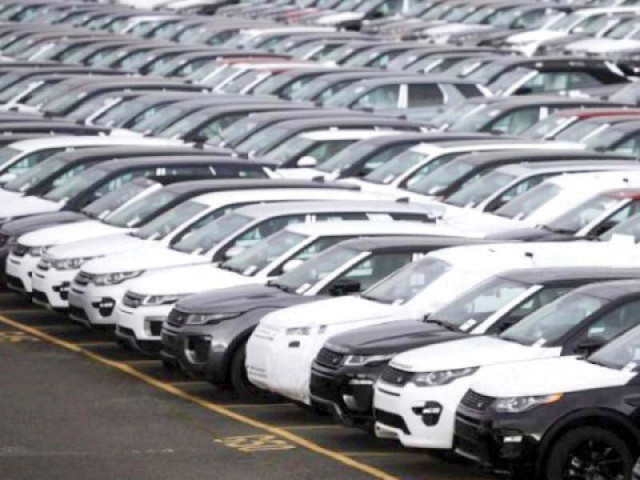Carmakers dismayed by changes in auto policy
Previous and new govts have made 14 changes since ADP 2016-21 announcement

After coming to power, the Pakistan Tehreek-e-Insaf (PTI) government introduced duty payment for used cars via overseas Pakistanis’ foreign currency accounts. PHOTO: FILE
However, this effort seems to have been undermined as the policy has seen nearly 14 changes since its launch, which have mitigated its benefits for the industry players.
Surprisingly, most of the amendments were made by the PML-N government, which had been credited with preparing the policy. The previous government deviated nine times in less than two years.
Right after the policy was announced, the then government imposed an additional duty of 1% on raw material through SRO 655, taking the total levy to 2% as the policy already included 1% duty.
Later, the government imposed 15% regulatory duty on steel products. In October 2017, it made it mandatory to pay for used car imports through the bank encashment certificate, a move which was welcomed as a step towards stability. However, the government abruptly withdrew this modification in the payment mechanism in February 2018.
In October 2017, the government imposed 15-80% regulatory duty on new completely built units (CBU) of vehicles, but it was suspended by the Sindh High Court. However, the Supreme Court temporarily allowed the collection of duty in March 2018.
In April 2018, the government announced duty relief for electric vehicles in the budget for 2018-19.
What came as a major blow to the domestic auto industry was the restriction on non-filers of tax returns who were stopped from purchasing new vehicles. It impacted the industry adversely as sales dropped significantly.
After coming to power, the Pakistan Tehreek-e-Insaf (PTI) government introduced the duty payment for used cars via overseas Pakistanis’ foreign currency accounts. As the curbs on non-filers badly impacted the sector, in March 2019 the current government lifted the ban through the Finance Bill and it also removed the regulatory duty on imports under SRO 655.
However, federal excise duty was imposed on vehicles of more than 1,700cc engine capacity, which was termed by industry experts “equally detrimental as the ban on non-filers”.
Reportedly, orders for such vehicles faced a sharp decline. Corolla Grande 1.8, Civic and Fortuner were the major models hit by the decision while new entrants were also shocked as most of them planned to enter the above 1,700cc segment.
“The decision will ultimately hurt the government’s goal of increasing tax collection as sales have dropped significantly. It will also hurt localisation and employment growth,” reasoned an automaker.
“At a time when the industry was eyeing the production target of 500,000 units, the imposition of 10% FED created uncertainty, ultimately hurting investments, production and employment,” he added. He emphasised that it must be addressed by the policymakers so that investors’ feasibility and planning could remain intact.
Recently, Adviser to PM on Commerce Abdul Razak Dawood has announced the removal of FED, for which the notification is still awaited.
“Although it is a welcome move, the government needs to understand that these ad hoc measures result in deviation from the auto policy, which will not only hurt our local industry, but will also have a bad impact on new investments,” said an auto parts vendor.
Published in The Express Tribune, April 12th, 2019.
Like Business on Facebook, follow @TribuneBiz on Twitter to stay informed and join in the conversation.



















COMMENTS
Comments are moderated and generally will be posted if they are on-topic and not abusive.
For more information, please see our Comments FAQ